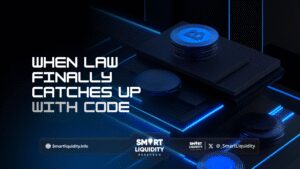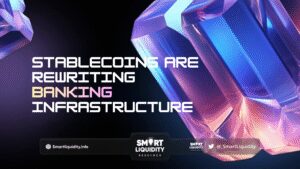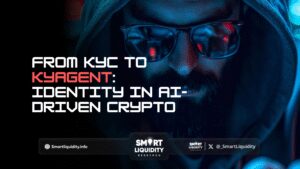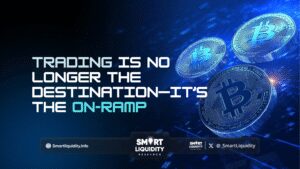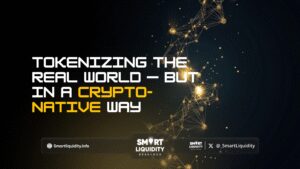Blockchain-Based Dispute Resolution


As the digital world embraces decentralization through blockchain, a new challenge emerges: how to resolve disputes in trustless systems where no central authority exists. Traditional arbitration and court systems—while established—are often ill-suited to handle the speed, scale, and cross-jurisdictional nature of blockchain interactions.
That’s where Blockchain-Based Dispute Resolution (BDR) steps in. It promises to deliver faster, cheaper, and more transparent conflict resolution for smart contract disputes, DAO disagreements, and cross-border digital commerce. Whether it’s a disagreement over a freelance payment on a decentralized platform or a failed NFT transfer, blockchain-based dispute resolution is reshaping how we think about justice in the digital age.
The Need for Blockchain-Based Dispute Resolution
In traditional systems, resolving a dispute—whether personal, commercial, or civil—typically involves a long process with legal filings, arbitration, and potentially a court case. The challenges here are significant:
- High costs for legal representation and court fees.
- Slow processing due to bureaucratic and procedural delays.
- Jurisdictional hurdles, especially in cross-border or online disputes.
- Trust dependency, where parties must trust third parties or institutions.
However, blockchain ecosystems are fundamentally different:
- Decentralized, with no central party overseeing transactions.
- Global, transcending national boundaries and local jurisdictions.
- Automated, with smart contracts executing actions without manual oversight.
This creates a paradox: while trust is minimized through code, disagreements still arise—whether it’s about unmet milestones in a smart contract, manipulation in DAO governance, or disputes over digital assets. Without effective resolution tools, users may lose confidence in decentralized systems.
Blockchain-based dispute resolution offers a solution that aligns with the core principles of Web3—decentralization, transparency, and automation—making it an essential component for the future of digital governance.
How Blockchain Dispute Resolution Works
Blockchain dispute resolution mechanisms function through a synergy of smart contracts, decentralized arbitration, cryptographic evidence, and incentive-driven participation.
Here’s a simplified process:
- Smart Contract Agreement: Parties enter into a digital agreement with predefined terms, including dispute resolution protocols.
- Dispute Trigger: If one party believes the contract terms were violated, they can raise a dispute on-chain.
- Arbitrator or Jury Selection: Jurors are selected randomly or through staking mechanisms. These are often token holders with reputational or financial stakes.
- Evidence Submission: Both parties submit evidence (screenshots, transaction hashes, digital signatures) via decentralized interfaces.
- Voting and Verdict: Jurors vote based on evidence. If the system uses game-theory incentives (like Schelling points), jurors are rewarded for consensus voting.
- Enforcement: The smart contract executes the verdict—e.g., releasing escrow funds, imposing penalties, or reversing a transfer.
The entire process is tamper-resistant and verifiable, and each step is recorded on the blockchain, enhancing transparency and accountability.
Leading Blockchain-Based Arbitration Platforms
A number of projects have emerged to offer decentralized resolution services:
Platform | Dispute Model | Governance | Token Mechanism | Use Cases |
Kleros | Crowd jury selection | Token-weighted voting | PNK (Proof of Coherence) | Freelance payments, e-commerce, DAO conflicts |
Aragon Court | DAO-appointed jurors | DAO governance | ANT + ANJ | DAO governance disputes |
Mattereum | Hybrid legal-tech | Legal + smart contracts | ETH-based | Intellectual property, physical asset tokenization |
Jur | Multi-layered protocol | Community courts | JUR token | B2B agreements, small claims |
OpenCourt | Decentralized judiciary | On-chain polling | TBD (emerging) | General-purpose blockchain litigation |
Each project targets specific niches—from DAOs to e-commerce—and provides tailored interfaces and governance systems for resolving disputes effectively.
Advantages and Challenges
Advantages of Blockchain-Based Dispute Resolution
- Speed: Automated enforcement reduces the time from dispute to settlement—from weeks to minutes in some cases.
- Transparency: Public ledgers record each action, enabling full auditability.
- Cost-Efficiency: Removes intermediaries like law firms, reducing administrative and legal costs significantly.
- Decentralized Trust: No need to rely on traditional institutions; trust is built through code and peer-reviewed processes.
- Global Reach: Effective for cross-border and remote collaborations where no single jurisdiction applies.
Challenges and Limitations
- Regulatory Grey Areas: Many jurisdictions don’t yet recognize smart contract rulings or DAO arbitration as legally binding.
- Complexity in Subjective Cases: While blockchain handles objective logic well, it struggles with nuanced, emotional, or ambiguous disputes.
- Limited Appeal Systems: On-chain finality means there is often no higher authority to appeal to—potentially leading to irreversible errors.
- Token Centralization: If tokens are held by a small group, decision-making power can be skewed, threatening fairness.
For blockchain dispute resolution to scale, these challenges must be addressed through layered protocols, hybrid systems, and robust community governance.
Legal Recognition and Future Outlook
Although BDR systems operate independently of state jurisdictions, integration with traditional legal frameworks is increasingly explored. Governments and regulators are taking notice:
- The UK Law Commission has published research into recognizing smart contract enforcement.
- Estonia, known for its e-government initiatives, is exploring blockchain in legal infrastructure.
- Singapore and Switzerland are working on hybrid models that combine traditional arbitration with on-chain validation and execution.
Future developments may include:
- Cross-Chain Arbitration: Tools that resolve disputes across multiple chains (e.g., Ethereum, Solana, Polygon).
- Decentralized Evidence Oracles: Trusted off-chain data feeds for physical events (e.g., delivery confirmations).
- AI-Powered Arbitration: NLP and ML systems to parse disputes, categorize cases, and recommend solutions.
- Layer-2 Legal Systems: Arbitration protocols built on L2s for speed, scalability, and micro-transaction efficiency.
Legal pluralism—where digital and traditional legal systems coexist—may be the most pragmatic path forward.
Real-World Use Cases and Applications
Blockchain-based dispute resolution is no longer a theoretical construct. Here’s where it’s already working:
- Freelance Platforms: Gitcoin and Ethlance users can resolve disputes over deliverables via Kleros without involving third-party mediators.
- Decentralized E-commerce: Platforms like Origin Protocol use smart contract-enforced escrow, with resolution handled on-chain in case of complaints.
- NFT Royalties and Rights: Creators and buyers can trigger disputes over ownership, royalty distribution, or licensing using decentralized arbitration.
- DAOs: Members can contest fraudulent proposals, financial mismanagement, or voting manipulation through platforms like Aragon Court.
- Tokenized Real Estate or Physical Assets: In platforms like Mattereum, ownership claims or delivery disputes can be resolved in hybrid smart-legal frameworks.
These real-world applications show how blockchain dispute resolution extends beyond finance, reshaping how we negotiate, enforce, and settle all kinds of digital agreements.
Conclusion
Blockchain-Based Dispute Resolution is not merely an innovation—it is a necessity for the decentralized digital world we are building. By integrating cryptographic security, economic incentives, and community governance, these systems offer an alternative vision of justice: one that is transparent, accessible, borderless, and efficient.
Although still evolving, BDR platforms are paving the way for a future where disputes are resolved not in courtrooms, but through algorithms, staking mechanisms, and smart contracts—ensuring fairness in a world governed by code.
As legal systems adapt and on-chain ecosystems mature, blockchain-based arbitration may well become a new pillar of digital civilization.
